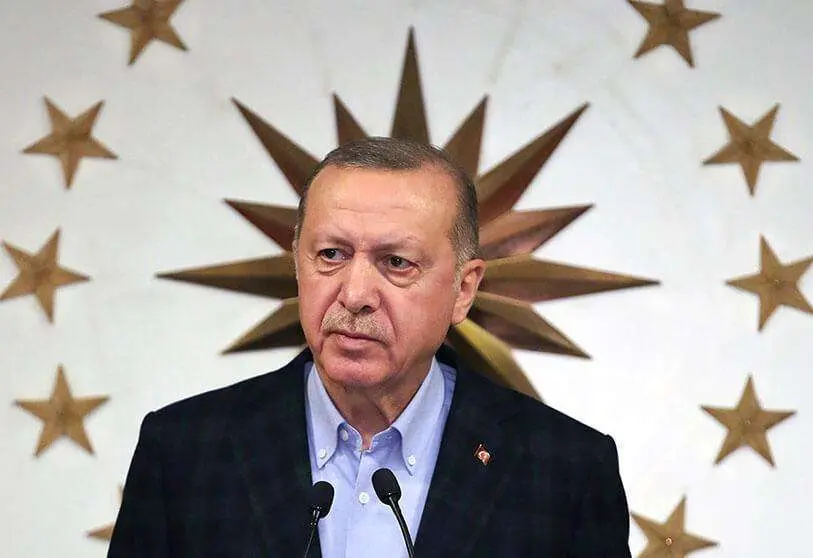Erdogan in favour of a new constitution

Turkish President Recep Tayyip Erdogan declared that he is in favour of a new constitution, causing surprise after two years of elections that look set to be difficult for him. Erdogan, 66, has been in power since 2003, first as prime minister and since 2014 as president. In theory, the current constitution allows him to remain head of state until 2028.
In the 2018 presidential and parliamentary elections, Erdogan was comfortably re-elected, but his party, the AKP, failed to win the absolute majority that would have allowed him to rule alone. Erdogan currently leads Turkey in a loose coalition with MHP leader Devlet Bahçeli, once one of his bitter rivals. In a sign of the dangers ahead, Erdogan suffered a dramatic electoral setback in 2019 at the municipal level, losing Istanbul and Ankara, cities that the Islamic conservatives had controlled for a quarter of a century.
The defeats in the last municipal elections in Turkey's two big cities, Istanbul and Ankara, have put the AKP and Erdogan on alert about what could happen in a hypothetical confluence of opposition to the next presidential elections. Ekrem Imamoglu and Mansur Yavas won in Istanbul and Ankara respectively, backed by the so-called National Alliance, which brings together the main opposition parties, the Republican People's Party (CHP) and the pro-Kurdish People's Democratic Party (HDP). Two other somewhat minority but vital parties, the Party of Good (IYI) and the Happiness Party (FP), also joined.
"It is clear that at the root of Turkey's problems are constitutions drafted by coup plotters since the 1960s (...) Perhaps it is time for Turkey to reopen the debate on a new constitution," Erdogan said. "We could take steps in this direction if we find an agreement" with the ultra-nationalist MHP, his ally, Erdogan added during a press conference after a Council of Ministers meeting in Ankara. Any draft constitution would be put to a referendum, according to AFP.
Erdogan has already carried out a thorough revision of the current constitution, which dates back to 1982 and was drafted after a military coup d'état, in 2017. With this constitutional revision, validated by referendum, Turkey has, among other things, moved from a parliamentary to a presidential system, which has considerably expanded the powers of the head of state. These latest statements come at a time when many analysts and opponents believe that Turkey intends to accelerate the next presidential and parliamentary elections, scheduled for 2023, something it denies.
The Turkish president has no alternative. He must broaden his alliance and seek the support of other parties to stay at the helm, as a change of course does not seem feasible and the economic situation aggravated by the coronavirus does not help either. The opposition, for its part, must stand firm and withstand great political and judicial pressure, as well as agree on who will be its candidate to face Erdogan, something that will not be easy either. Victory depends on his ability to unite widespread discontent and represent a large number of minorities and identities that do not fit into the Turkey Erdogan is designing. Finally, the Eurasian country's president has the trump card of bringing forward the elections, a scenario that many analysts are contemplating, and which could provoke a rush in an opposition that must bring together numerous sensitivities.








